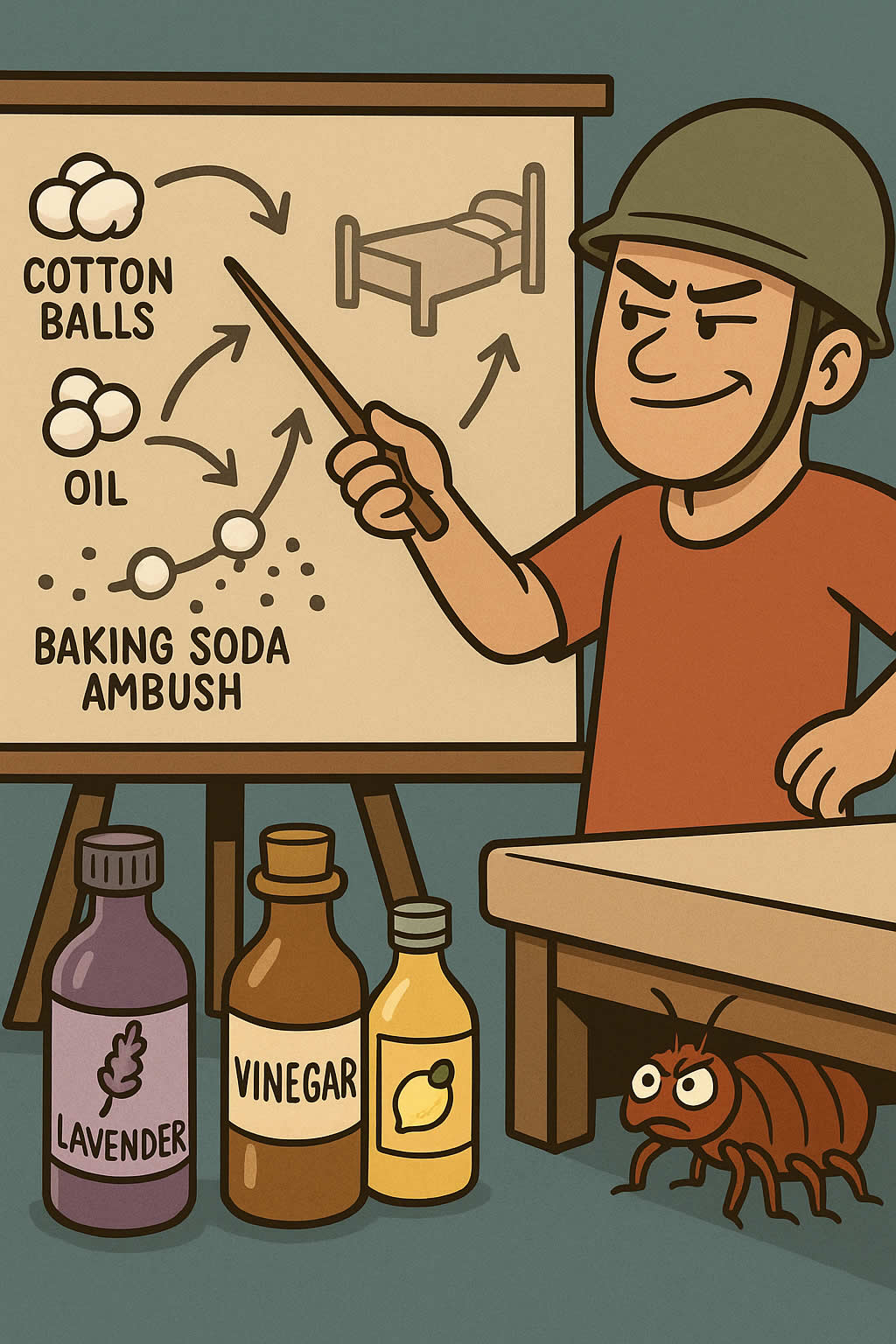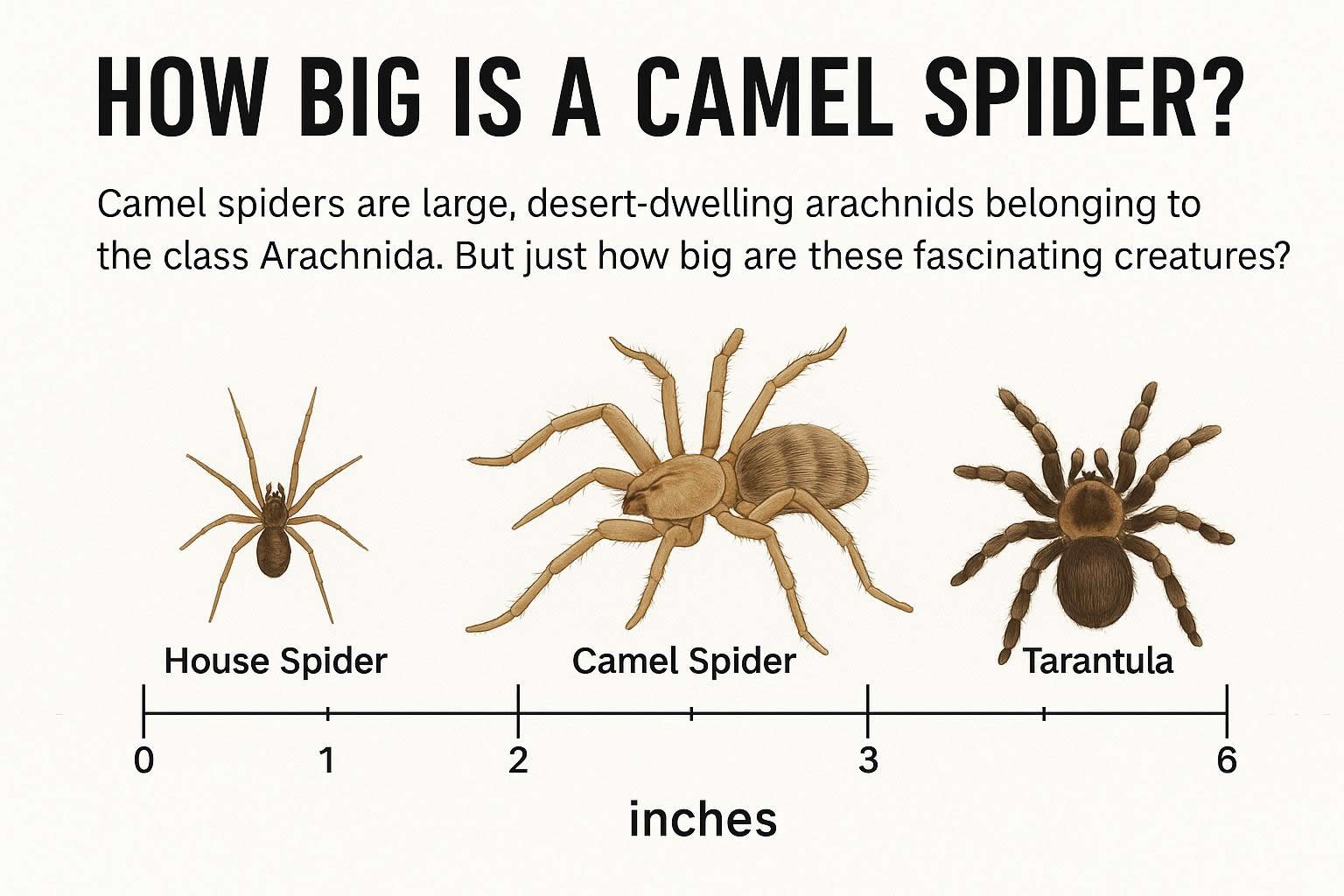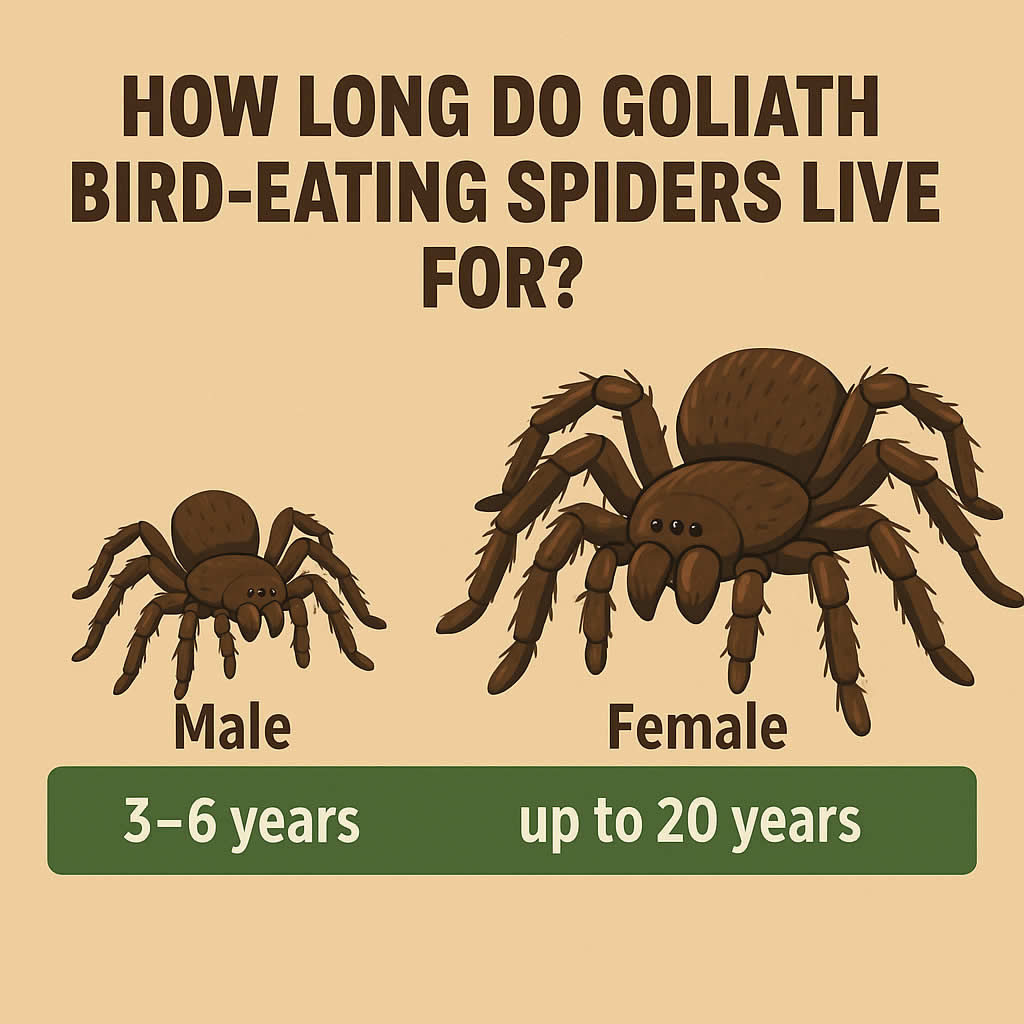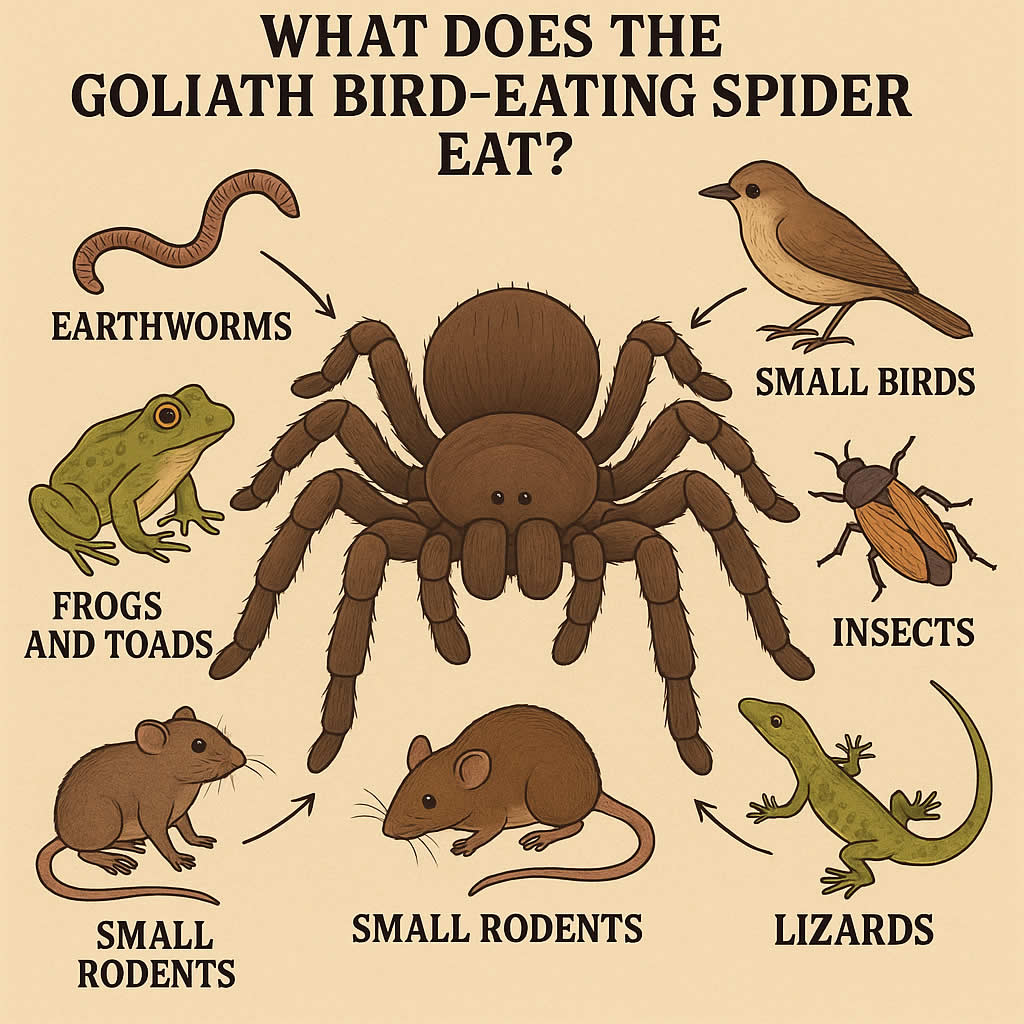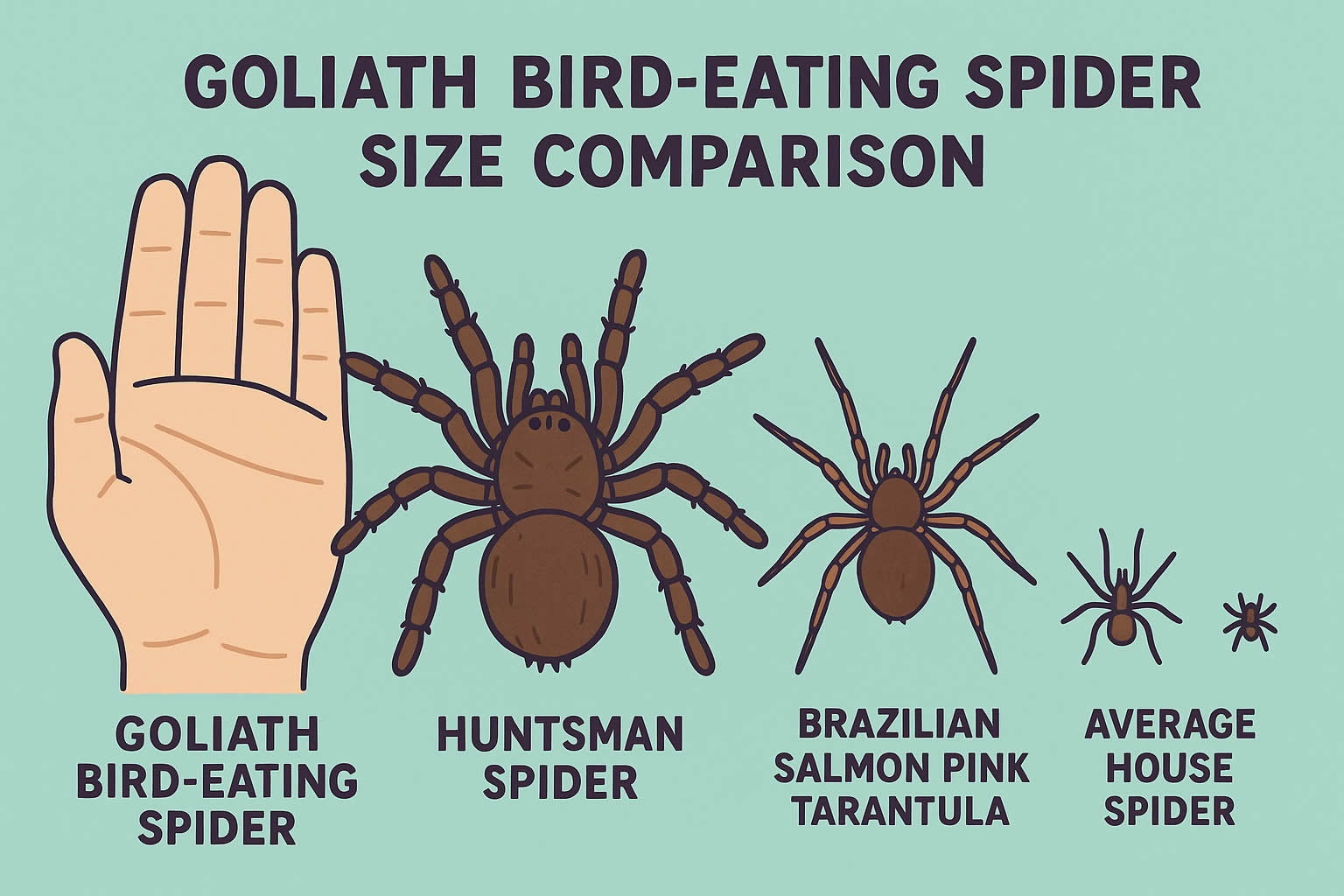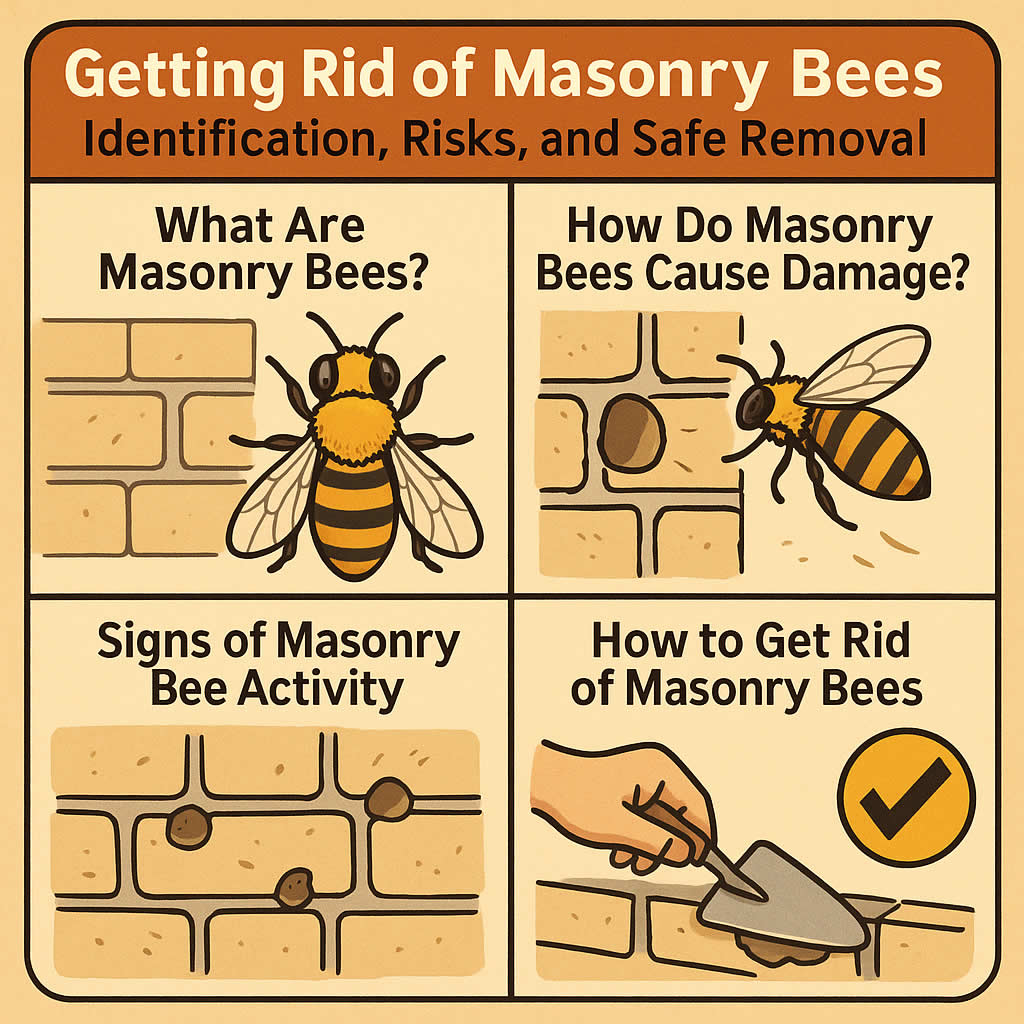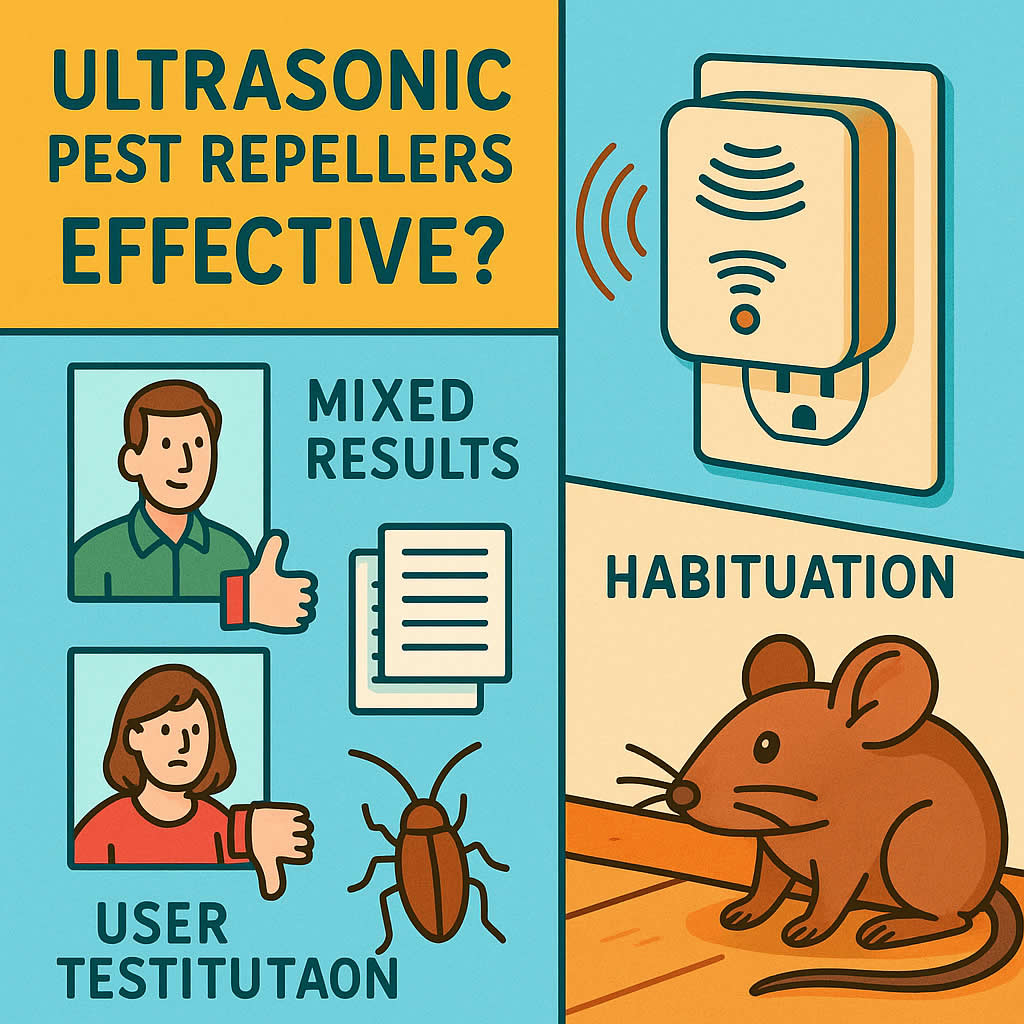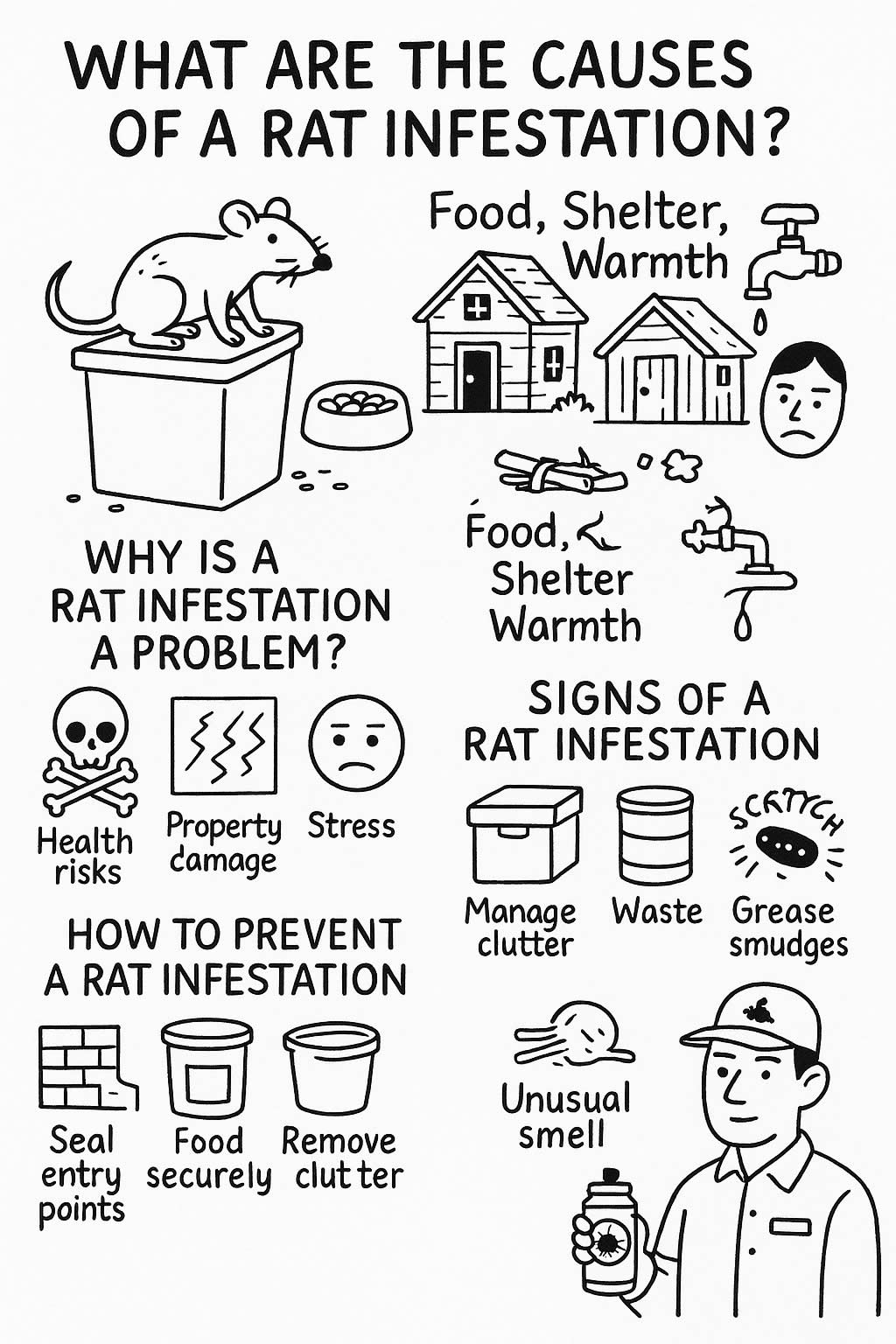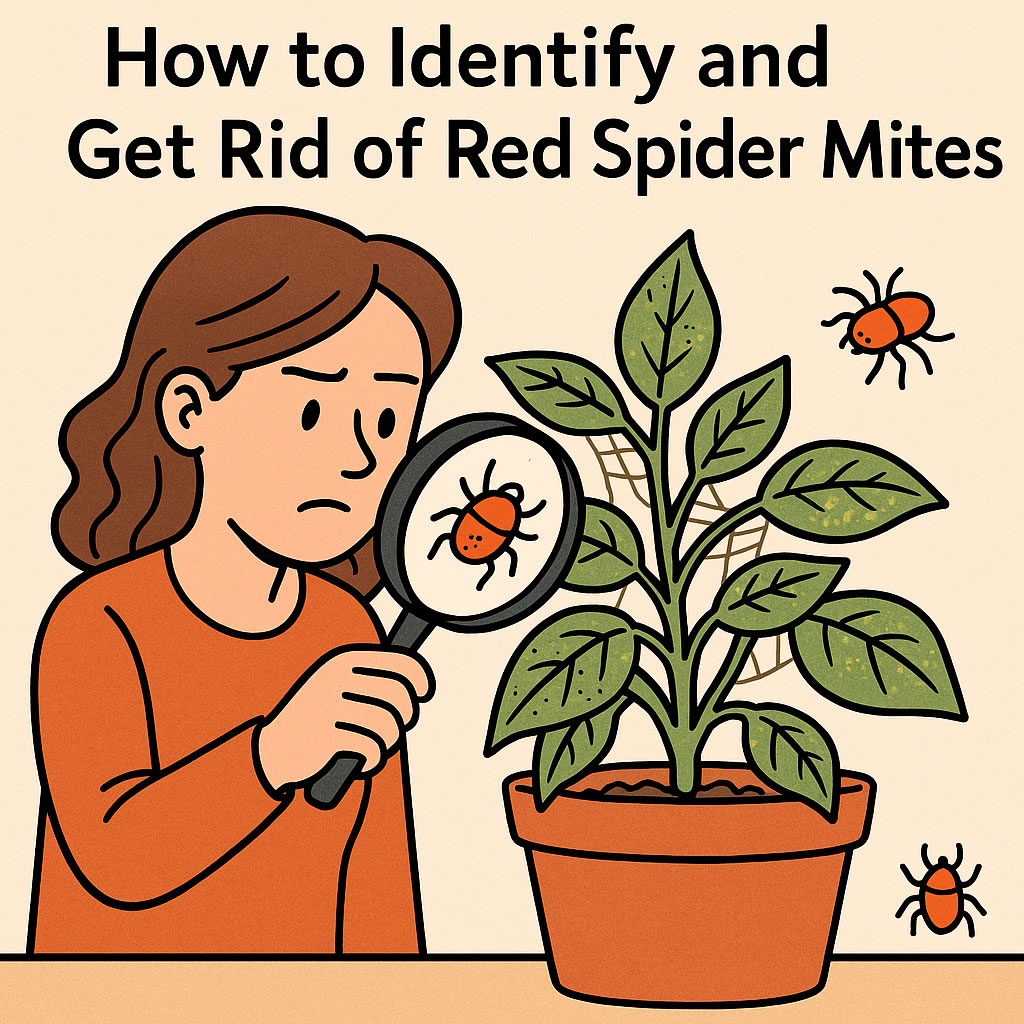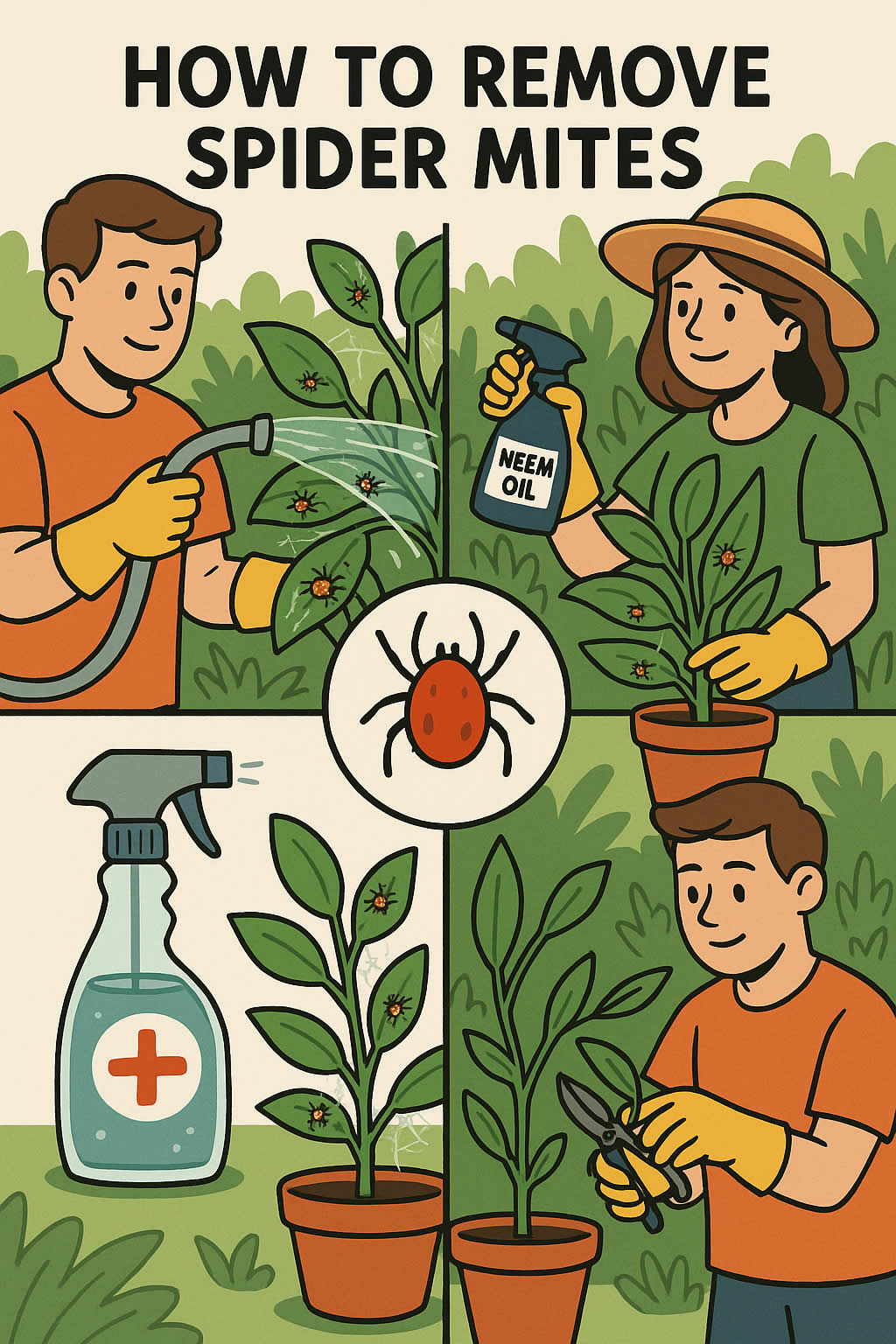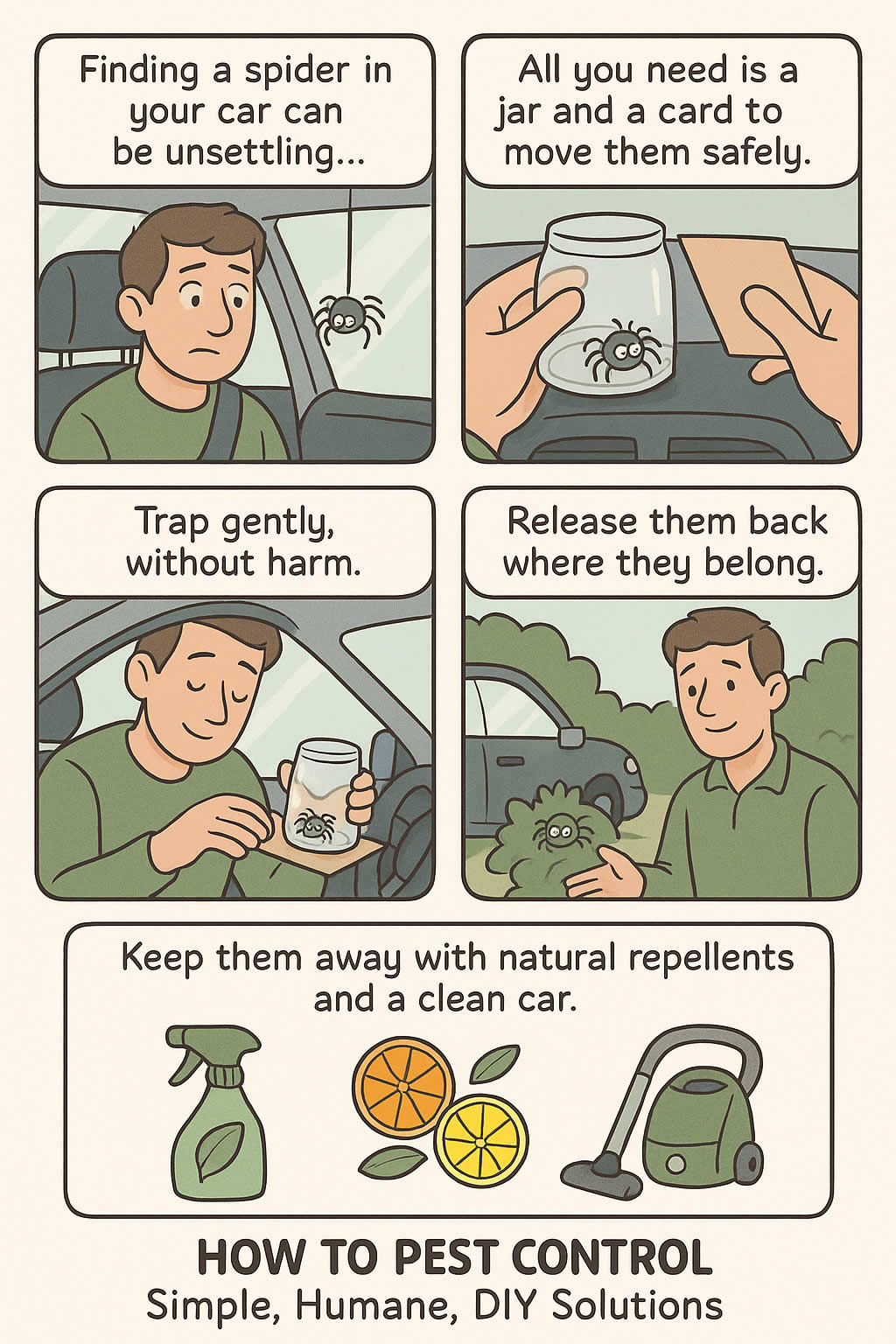Related Queries
ToggleBed bugs are one of those problems that many households never expect to face, but when they arrive, they bring a huge amount of stress. These tiny pests feed on human blood while you sleep, leaving itchy bites and making it difficult to rest properly. Infestations are becoming more common across the UK, and once they take hold, they can spread fast.
It’s natural to want to avoid harsh chemicals if possible, especially in bedrooms where you and your family spend so much time. That’s why many people turn to natural remedies as a first line of defence. From heat treatments and essential oils to mattress encasements and careful cleaning, there are a range of approaches that can make a real difference.
In this guide, we’ll take you through everything you need to know about using natural remedies for bed bugs. We’ll explain which methods can help, which ones are more myth than solution, and how to spot the signs of an infestation early. You’ll also find tips on prevention and guidance on when it’s best to call in professional support. By the end, you’ll have a clear picture of what works, what doesn’t, and how to protect your home.
What Are Bed Bugs and Why Are They Hard to Get Rid Of?
Bed bugs are small, flat insects about the size of an apple seed. They’re brown in colour, and after feeding they often swell up and appear darker. Unlike other pests, bed bugs don’t live in dirt or food waste — they live where people rest. They hide in mattresses, bed frames, furniture seams, and even tiny cracks in skirting boards. At night, they come out to feed, usually targeting exposed skin on arms, legs, and shoulders.
What makes bed bugs particularly difficult to eliminate is their resilience. They can survive for months without feeding, which means leaving a room empty won’t always starve them out. Their small size allows them to hide in places you’d never think to check, and they reproduce quickly. A single female can lay hundreds of eggs in her lifetime, and those eggs hatch into new bugs within weeks.
This combination of stealth, speed, and survival skills makes infestations tricky. Even if you reduce their numbers with cleaning or natural remedies, a few surviving eggs can restart the problem. That’s why it’s so important to act quickly when you spot the first signs of bed bugs.
Signs of a Bed Bug Infestation
The sooner you notice an infestation, the easier it is to control. One of the first things people notice is bites on their skin. These usually appear in clusters or lines, and they’re often itchy. Some people react more strongly than others, so if one person in the household is bitten while another seems unaffected, it doesn’t mean the bugs aren’t there.
You might also see small blood spots on your bedding. These come from squashed bugs or bites that bleed slightly during the night. Another clue is dark specks, which are the droppings bed bugs leave behind. These can appear on sheets, mattresses, or even walls close to your bed.
As infestations grow, you may notice a musty, sweet smell in the room. This comes from the scent glands of the bugs and is strongest in heavy infestations. Finally, shed skins and tiny white eggs can sometimes be seen in seams and cracks where the bugs hide.
Spotting even one or two of these signs is enough reason to act quickly. Bed bugs spread fast, and early action gives you a much better chance of dealing with them effectively.
Common Misconceptions About Bed Bugs
There are a lot of myths about bed bugs, and they can make people feel embarrassed or confused about what’s happening. One of the most common misconceptions is that bed bugs are caused by poor hygiene. In reality, bed bugs don’t care whether a home is spotless or messy — they only care about access to people to feed on. Clean, well-kept homes can have infestations just as easily as cluttered ones.
Another myth is that bed bugs only live in beds. While mattresses and bed frames are their favourite hiding spots, they can be found in sofas, chairs, carpets, curtains, and even behind wallpaper. Anywhere close to where people rest can become a hiding place.
Some people believe that simply leaving a room empty will get rid of bed bugs. Unfortunately, these pests can survive for months without feeding, so this approach rarely works. Others think that bed bugs can jump or fly like fleas — they can’t. They crawl, but they’re excellent at hiding and moving quickly in the dark.
By understanding the reality of bed bugs, you can make better decisions about how to deal with them. Myths often lead to wasted time and ineffective treatments, while facts point you toward real solutions.
Natural Remedies That Can Help Control Bed Bugs
When people first discover bed bugs, the immediate reaction is usually panic. It’s tempting to reach straight for chemical sprays, but many homeowners prefer to start with natural approaches. These methods can make a big difference in reducing numbers, limiting spread, and buying you valuable time.
It’s important to remember that while natural remedies can help, they often work best as part of a wider plan. Bed bugs are tough, and most infestations need persistence. Think of natural methods as tools to control the problem rather than instant solutions. Used consistently, they can give you relief and slow the spread of bugs while you decide whether to bring in professional help.
Heat Treatment at Home
One of the most effective natural defences against bed bugs is heat. These pests can’t survive extreme temperatures, and heat has the added benefit of killing both live bugs and their eggs.
The simplest way to use heat at home is through washing. Bedding, clothing, and fabrics that may be infested should be washed at the hottest temperature the material allows, ideally above 60°C. Following this with a hot tumble dry ensures that any remaining bugs or eggs are destroyed.
Steam cleaning is another powerful option. A quality steam cleaner can reach into mattress seams, carpets, and furniture joints where bed bugs hide. The high heat penetrates areas that washing can’t, giving you an extra layer of protection. Move the steamer slowly so the heat has time to work.
While heat is one of the best natural tools, it can be hard to apply to entire rooms or large pieces of furniture. Still, for items you can wash or steam, it’s an excellent way to cut numbers quickly.
Vacuuming and Cleaning Routines
Regular vacuuming is a simple but very effective way to reduce bed bug numbers. Focus on seams of mattresses, the edges of carpets, under skirting boards, and around furniture joints. These are the areas where bugs tend to gather. Use a crevice tool to get into tight spaces, and make sure you go slowly so the vacuum has time to collect the bugs.
Once you’ve vacuumed, it’s essential to dispose of the contents straight away. Seal the vacuum bag or empty the canister into a plastic bag, tie it securely, and place it outside. Otherwise, the bugs can crawl back out and re-infest your home.
Vacuuming won’t eliminate an infestation, but it can dramatically reduce the population and make other treatments more effective. Combining vacuuming with steam cleaning gives even better results, as you’re tackling both the visible bugs and the hidden ones.
Essential Oils (Tea Tree, Lavender, Peppermint, etc.)
Essential oils are often recommended as natural repellents for bed bugs. Oils such as tea tree, lavender, peppermint, and eucalyptus are said to deter insects with their strong scents. Some studies suggest that certain oils may have limited insecticidal properties, but the evidence is mixed.
Using essential oils can make a room smell fresher, and they may help discourage bugs from settling in treated areas. You can dilute oils with water and spray them lightly on bedding, skirting boards, or furniture. Always patch test first, as some surfaces can be stained by oils.
The limitation is that essential oils rarely kill bed bugs outright. At best, they may repel some insects or make it harder for them to settle. They can be useful as part of a wider plan, but they shouldn’t be relied upon as the main treatment.
Diatomaceous Earth
Diatomaceous earth is a natural powder made from fossilised algae. To humans and pets, it feels like a fine dust, but to insects it’s sharp and abrasive. When bed bugs crawl over it, the powder damages their outer shells and dehydrates them, eventually leading to death.
The key to using diatomaceous earth is careful application. A light dusting around the legs of beds, along skirting boards, and near cracks can create a barrier that bugs struggle to cross. Avoid piling it up — a thin layer is more effective.
Always use food-grade diatomaceous earth, as other types can contain harmful additives. Wear a mask when applying, as the fine dust can irritate lungs. With patience, this method can reduce numbers significantly, though it works slowly and requires reapplication after cleaning or vacuuming.
Baking Soda and Vinegar
Baking soda and vinegar are common household products often suggested for pest control. Some people believe baking soda kills bed bugs by drying them out, while vinegar is thought to kill on contact.
In reality, the effectiveness of these methods is debated. Vinegar may kill bed bugs if sprayed directly onto them, but it doesn’t have any lasting effect once it dries. Baking soda is less effective, as it doesn’t reliably damage bed bugs’ shells.
That said, these products can still be useful in supporting roles. Vinegar can help clean surfaces where bed bugs hide, and baking soda can reduce odours associated with infestations. They shouldn’t be seen as cures, but they can make the home environment less welcoming to pests.
Mattress Encasements and Bed Covers
Bed bugs thrive in mattresses and bed frames, where they can hide close to their food source. Mattress encasements are special covers that completely seal the mattress, preventing bugs from getting in or out. Once in place, they trap any existing bugs inside and stop new ones from settling.
These covers don’t kill bed bugs instantly, but over time, any trapped inside will die. Combined with regular cleaning and other remedies, encasements are a highly effective way to protect your bed. They also make inspections easier, as any signs of bed bugs will be on the outside of the cover rather than hidden in seams.
Look for encasements that are labelled bed bug proof, with strong zips and secure seals. Fitting one is a long-term investment that provides ongoing protection.
Decluttering and Reducing Hiding Places
Bed bugs are experts at hiding in small spaces. The more cluttered a room, the more opportunities they have to spread. Decluttering your bedroom and nearby areas reduces the number of places where they can stay out of sight.
Start with items you don’t need on or under your bed. Clear piles of clothing, boxes, and other belongings. Store items in sealed plastic containers where bugs can’t get in. Keep furniture away from walls where possible, and seal cracks in skirting boards or floors.
Decluttering doesn’t kill bed bugs directly, but it makes other treatments more effective. When there are fewer hiding spots, you’re more likely to find them and deal with them. It also makes professional inspections easier if you decide to call for help later.
Together, these natural remedies form a strong set of tools for tackling bed bugs. While none of them may solve the problem on their own, combining them can reduce infestations and help you take control of the situation.
Myth-Busting Natural Remedies
Natural remedies for bed bugs are popular, but not all of them live up to the claims you’ll see online. Some treatments are based on myths or misunderstandings, and relying on them can give bed bugs more time to spread. It’s important to separate fact from fiction so you don’t waste effort on methods that won’t deliver results.
Here are some of the most common natural “cures” that don’t work as well as people hope — and the reasons why.
Rubbing Alcohol
One of the most widely suggested remedies is rubbing alcohol. The idea is that spraying it directly onto bed bugs kills them by drying out their bodies. While alcohol can kill on contact, it has serious limitations.
First, it only works if you spray the bug directly. Bed bugs are excellent at hiding, so it’s unlikely you’ll reach the majority of them. Second, alcohol evaporates quickly, so it has no lasting effect. As soon as it dries, it stops working.
There’s also a safety risk. Rubbing alcohol is highly flammable, which makes it dangerous to spray around beds, carpets, and electrical outlets. For these reasons, alcohol is not a practical or safe way to deal with infestations.
Ultrasonic Devices
Another popular claim is that ultrasonic devices can drive bed bugs out of your home. These plug-in gadgets are advertised as emitting high-frequency sounds that pests can’t stand, forcing them to leave.
Unfortunately, there’s no scientific evidence to support these claims. Studies have found that ultrasonic devices have little to no effect on bed bugs, or on other common pests like cockroaches and rodents.
At best, they provide peace of mind, but they don’t actually remove or kill infestations. Relying on them risks giving bed bugs more time to spread through your home.
Dryer Sheets and Herbs
Some people suggest placing scented dryer sheets or herbs such as mint and rosemary around beds. The idea is that the strong smells repel bed bugs and keep them away from sleeping areas.
While these smells might be unpleasant to insects, they don’t stop bed bugs from feeding. At best, they may mask odours for humans, but they don’t affect the survival of the pests. Bed bugs are driven by the need to feed on blood, and a scented sheet won’t override that instinct.
This method might make your bedding smell fresher, but it won’t solve an infestation.
Leaving Rooms Empty
Another common misconception is that you can get rid of bed bugs by leaving a room unused for a while. The thinking is that without people to feed on, the bugs will die out.
The problem is that bed bugs are extremely resilient. Adults can survive for months without feeding, and in cooler conditions they may last even longer. Eggs also remain viable until they hatch, often weeks later.
This means that leaving a room empty rarely works. When you return, the bed bugs will still be there, waiting to feed again.
By busting these myths, it becomes clear that not all natural remedies are worth your time. Understanding what doesn’t work helps you focus on the methods that genuinely make a difference.
Prevention Tips Using Natural Approaches
Once you’ve taken steps to reduce or remove bed bugs, the next priority is preventing them from coming back. Prevention is often simpler than treatment, and natural approaches can play a big part in keeping your home free from infestations. With some consistent habits and practical measures, you can make your living space far less inviting for these pests.
Regular Cleaning and Inspection
One of the best preventative steps is a routine of regular cleaning and careful checks. Wash bedding frequently at high temperatures and tumble dry on hot settings when possible. Vacuum bedrooms thoroughly at least once a week, paying attention to mattress seams, bed frames, and the edges of carpets.
When cleaning, look for signs of bed bugs such as tiny black spots, shed skins, or small blood stains. Spotting these early makes treatment much easier. Keep a torch handy to check dark corners, cracks, and joints in furniture.
Even a quick inspection every couple of weeks can make a big difference. By catching any signs early, you can act before a few bugs turn into a full infestation.
Protective Measures When Travelling
Travelling is one of the main ways bed bugs spread. Hotels, guest houses, and even public transport can be sources of infestations. Taking a few simple precautions when away from home helps protect you from bringing unwanted guests back.
Inspect hotel beds as soon as you arrive, checking the mattress seams, headboard, and bedside tables. Keep luggage off the floor and away from the bed, using stands or racks where possible. Clothes should be kept in sealed bags rather than unpacked into drawers.
When you return home, wash and dry travel clothing at high temperatures straight away. Vacuum or wipe down your suitcase before storing it. These small steps greatly reduce the risk of introducing bed bugs to your home after a trip.
Safe Storage and Decluttering
Bed bugs thrive in cluttered spaces where they can hide undisturbed. Keeping bedrooms tidy and reducing the amount of stored items near beds lowers the number of potential hiding spots.
Use sealed plastic containers for storage rather than cardboard boxes, which bed bugs can easily crawl into. Items that aren’t regularly used should be kept away from sleeping areas. Avoid picking up second-hand furniture or mattresses unless you’re certain they’re free from pests, as these are common sources of infestations.
Decluttering also makes inspections easier. With fewer places for bugs to hide, you can quickly spot any signs of trouble and deal with them before they spread.
By following these natural preventative steps, you make your home much less attractive to bed bugs. Regular cleaning, cautious travel habits, and tidy living spaces don’t just reduce the risk of infestations — they also give you peace of mind that your home is protected.
When Natural Remedies Aren’t Enough
Natural remedies can help control bed bugs and sometimes even reduce infestations significantly. But the reality is that these pests are among the hardest to eradicate completely. Their resilience, ability to hide, and rapid reproduction mean that DIY methods often fall short in the long run. Knowing when to stop relying on home treatments and bring in a professional is key to protecting your home and your peace of mind.
Signs You Need Professional Help
If you’re still noticing bites after weeks of treatment, it’s a clear sign that bed bugs are surviving your efforts. Another warning is when infestations spread beyond the bedroom — into sofas, chairs, or other rooms. This shows that the problem is growing rather than shrinking.
You may also find that no matter how much you clean or apply remedies, new signs keep appearing. Blood spots, droppings, or shed skins turning up repeatedly point to a population that’s still active.
If the infestation is causing significant stress, sleepless nights, or allergic reactions, it’s time to call in professionals. Bed bugs affect more than just your property — they take a toll on your wellbeing too.
Why Professional Pest Control Works Better
Professional pest control services have access to tools and techniques that go far beyond what’s available at home. Heat treatments, for example, can raise the temperature of entire rooms to levels that kill all stages of bed bugs, including eggs. This kind of treatment isn’t possible with DIY methods.
Pest control experts also use targeted, approved insecticides that are more effective and longer-lasting than shop-bought sprays. Combined with professional inspection and monitoring, these treatments get to the root of the problem rather than just tackling surface-level signs.
Another advantage is experience. Professionals know where to look, how to identify hidden infestations, and which combination of methods will work best for your situation. This saves time and increases the chances of a permanent solution.
Pest Control Bletsoe – Pest Control East Hyde – Pest Control Berkshire
